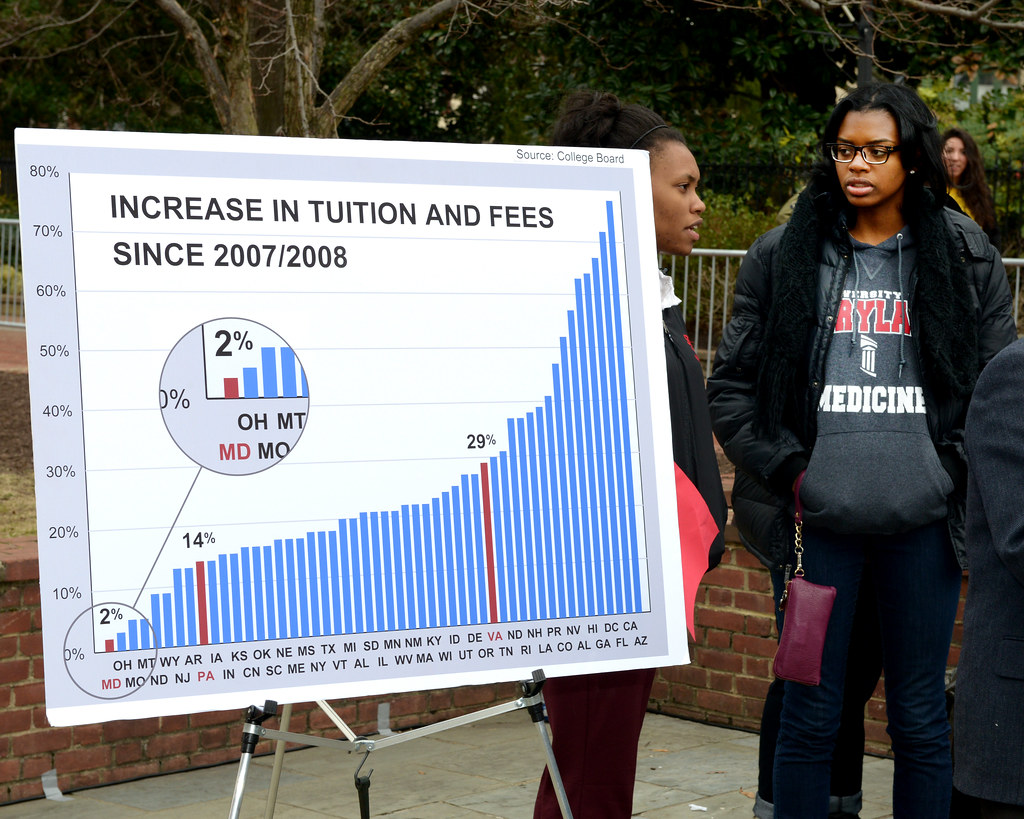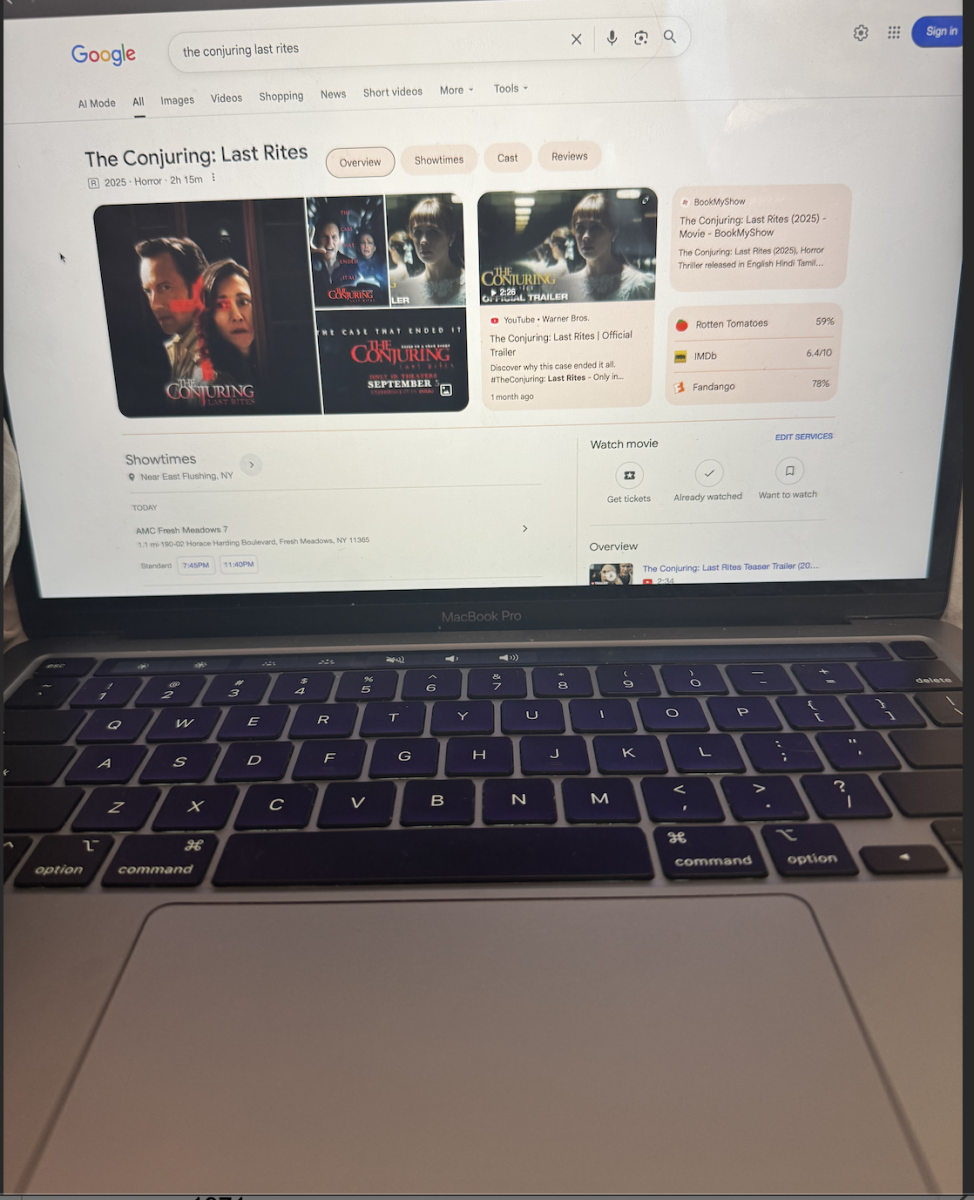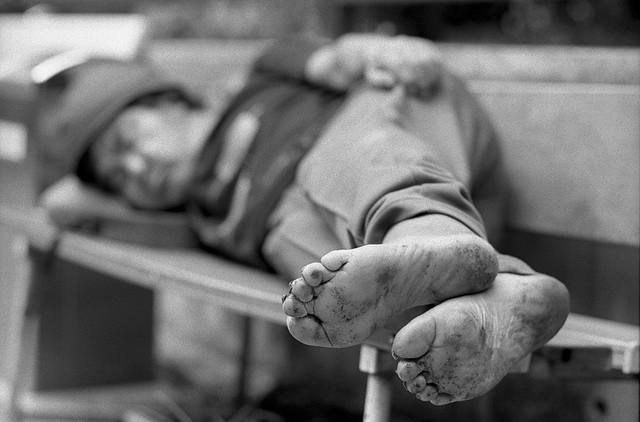by Jasmine Tejada, staff reporter

Women have a challenge that needs to be addressed: gender stereotype. Women have fought for equality but, discrimination still exist in the labor force.
“ I think from the beginning we need to ‘build up our generation’ to eliminate discrimination. For example, a bunch of girls raise their hands to take the laptop cart to the lab, but teachers always pick boys. If girls are eager to help out in things boys normally do let them and we need to start when girls are young,” senior Daria Lee said.
Even though women play a huge role in society, the typical gender stereotype hasn’t faded away in the workforce.
Picture by Jasmin Tejada.
Rushing before heading to work, a women is expected to keep her clothes from wrinkling as well as help the household financially. The roles women play in society are constantly changing, but the typical gender stereotypes have created obstacles in the work place.
Women aren’t politicians
Females who have the potential to run for office instead work as a public service announcers, mayors, or secretaries because of the fact in the political workforce they’re looked as incapable of carrying out the work men usually do.
“Anytime a field has a higher percentage of males, you’re going to hear sexist comments.” assistant principal Mr. Jurman said.
In the case of Sarah Palin, the Conservative is an advocate for saving energy and importing less foreign oil, but she isn’t known for that.
“I think that every politician does some good and some bad. Sarah Palin not wanting the country to buy oil some place else is good. But at the same time SNL made fun of her a lot, and the way she sometimes represents herself hurts her as a good candidate,” senior Thelion Simon said.
Women are nurses, not doctors
According to American Community Survey Highlight Report, in 2011 the nursing workforce had nine percent of all nurses who were male, while 91 percent were females. Even though 91 percent of women are qualified to apply and attend medical school to become doctors, most don’t.
“When I hear the word doctor the first thing that comes to mind is someone smart, tireless, and cares for others… It shouldn’t matter if you’re a girl or boy, but girls aren’t encouraged as much as boys and there’s a wage gap. Not just in medical, but I feel like in everything,” junior Binnah Cha said.
Women are supposed to make less than men
“Men are the breadwinners” is a common saying and to some extent true in many cases, males are making more than females. According to What Causes the Gender Wage Gap?, gender discrimination isn’t the only factor to blame. Although statistics don’t lie, the reason for the gap is because women tend to work part time instead of full time. The career they choose to pursue can also affect their salary, and women take longer leaves than men do.
“The fact is girls have babies and the guy isn’t the one that’s going to stay home. Its the girl’s job that gets put on the front line,” senior Gabriella Sanchez said.
However, even when two people of the opposite sex have the same amount of schooling, the same work experience, and work the same hours there is still a ten cents difference.
“We have made strives, smashed that glass ceiling, but we still need to expect and demand a fair and clear set of standards across the boards, as women” assistant principal Mrs. Poulos said.
It’s remarkable how although the times have changed, discrimination hasn’t died out. It remains an issue that needs to be tackled, especially in the labor force for women.
To read part 1 click here




































